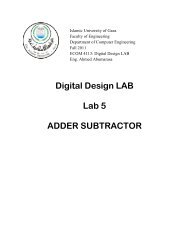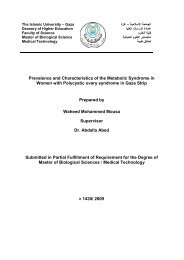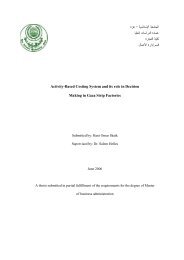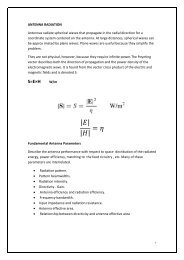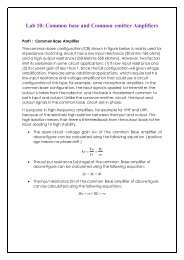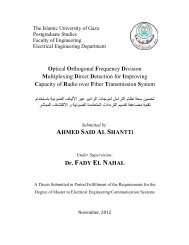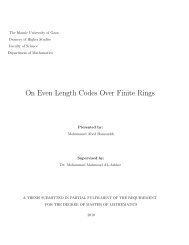A prActicAl guide Benchmarking in european Higher education
A prActicAl guide Benchmarking in european Higher education
A prActicAl guide Benchmarking in european Higher education
You also want an ePaper? Increase the reach of your titles
YUMPU automatically turns print PDFs into web optimized ePapers that Google loves.
APQC further advocates that benchmarkers should :<br />
• Know and abide by the <strong>Benchmark<strong>in</strong>g</strong> Code of Conduct.<br />
• Have basic knowledge of benchmark<strong>in</strong>g.<br />
• Prior to contact<strong>in</strong>g partners, have determ<strong>in</strong>ed what to benchmark,<br />
identified key performance variables to study, recognized superior<br />
perform<strong>in</strong>g companies, and completed rigorous self-assessment.<br />
• Have a questionnaire developed, and share it <strong>in</strong> advance if requested.<br />
• Possess the authority to share and are will<strong>in</strong>g to share <strong>in</strong>formation<br />
with benchmark<strong>in</strong>g partners.<br />
• Work through an agreed upon schedule.<br />
The <strong>Benchmark<strong>in</strong>g</strong> Code of Conduct also <strong>in</strong>cludes <strong>guide</strong>l<strong>in</strong>es for partners<br />
<strong>in</strong> benchmark<strong>in</strong>g exercises <strong>in</strong> which (potential) competitors are<br />
<strong>in</strong>volved. In this case, it is advisable to establish specific ground rules <strong>in</strong><br />
advance. It is important not to ask competitors for sensitive data or put<br />
pressure on partners to provide such data. An ethical third party could<br />
help to assemble and remove competitive data. In any case, APQC<br />
advises that <strong>in</strong>formation received from benchmark<strong>in</strong>g partners should<br />
always be treated as <strong>in</strong>ternal communications.<br />
Guidel<strong>in</strong>es - Procedures/operations should:<br />
• Be clearly documented us<strong>in</strong>g a transparent methodology which is<br />
communicated both <strong>in</strong>side the <strong>in</strong>stitution and among benchmark<strong>in</strong>g<br />
partners<br />
• Be supported with adequate human, f<strong>in</strong>ancial and other resources to<br />
carry out the benchmark<strong>in</strong>g exercise<br />
• Where appropriate, be implemented by carefully selected and tra<strong>in</strong>ed<br />
experts <strong>in</strong> assessment/evaluation work<br />
• Be established so as to process data <strong>in</strong> a well-structured way<br />
• Ensure a periodical monitor<strong>in</strong>g/review of the effectiveness of the<br />
benchmark<strong>in</strong>g process and its value <strong>in</strong> implement<strong>in</strong>g changes at the<br />
relevant level with<strong>in</strong> the participat<strong>in</strong>g <strong>in</strong>stitutions (measur<strong>in</strong>g outcomes)<br />
A Practical Guide - <strong>Benchmark<strong>in</strong>g</strong> <strong>in</strong> European <strong>Higher</strong> Education<br />
71



